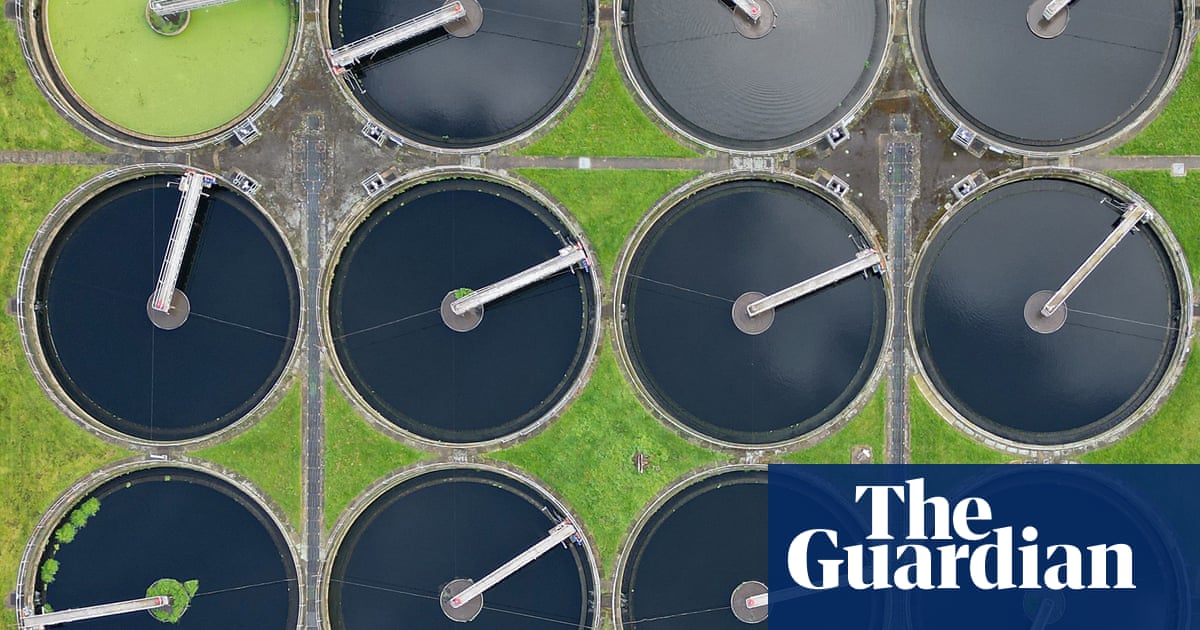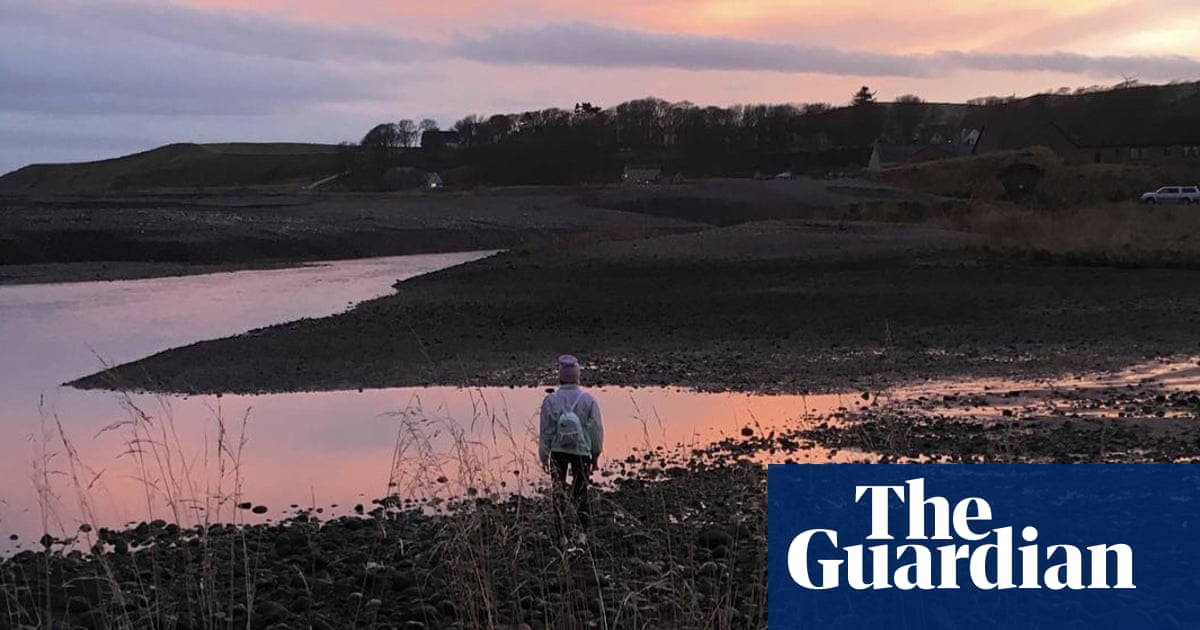Whistleblowers say UK water companies are knowingly failing to treat legally required amounts of sewage, and that some treatment works are manipulating wastewater systems to divert raw sewage away from the works and into rivers and seas.
It is well known that water companies are dumping large volumes of raw sewage into rivers and seas from storm overflows but an investigation by the Guardian and Watershed Investigations reveals that the industryâs âdirty secretâ is bigger, broader and deeply systemic.
By law, every wastewater treatment works must treat a minimum amount of sewage as stipulated in their environmental permits. Four whistleblowers have told Watershed that a large proportion regularly fail to do so and are not reporting it to the environmental regulator.
The insiders say the amount of sewage reaching a works is being âmanipulated at the front endâ by âflow trimmingâ, which can be done a number of ways including by âmanually setting penstocks to limit the flowâ, by âdropping weir levelsâ and by âtuning down pumps at pumping stationsâ. The diverted raw sewage makes its way into ditches, rivers and seas.
One industry insider says they âhave personally surveyed works and found valves operated and diversion pipes installed so that part of the flow arriving is deliberately diverted to an environmentally sensitive stream, rather than into the works, so that the works passes compliance of sanitary parameters.
âI have spoken to staff who have carried out surveys to inform investment plans, who have found that the controls of terminal pumping stations have been deliberately altered so that they pump only a reduced proportion of the flow figure they were designed to pump, in the knowledge that this was a breach of flow compliance. This continues.â
The insider adds: âI have spoken to [people at] other water companies who confessed that flow compliance is a dirty secret of the UK water industry, which environmental regulators know about (although perhaps not the scale) and have turned a blind eye due to resourcing constraints.â
The raw sewage that is diverted away from the works flows into ditches, rivers and seas and the amount will probably dwarf the volumes dumped into the environment via storm overflows.
âIt is an enormous scandal that many who work in the industry know about, but nobody wants to talk about,â said the whistleblower. âWater companies report their overall compliance with wastewater rules as good, but dig a little deeper and youâll see that lots of treatment works are failing to deal with the amount of sewage they are legally meant to treat.â
The insider says non-compliance is widespread across the UK, and that they are aware of works where as much as 30% of the sewage they are expected to handle goes straight into the environment without treatment.
âSome operators, with or without the support of their chain of command, are deliberately reducing the flow of sewage into the treatment works by either dropping the levels of weirs so that sewage flows out into the environment, or by cutting back the flows at pumping stations. This way they can say they are treating a greater proportion of the sewage they receive because they are now receiving less into the works,â says the whistleblower.
âSadly there are many incentives for water companies, rogue teams or staff to do this, including reduced cost of pumping and treatment, and treatment works that were struggling to comply appearing to be passing, with the resulting regulatory performance rewards leading to staff bonuses and increased dividends to shareholders â with very little risk that the manipulation will be found or anyone prosecuted.â
A second insider says it is âalmost standard practice to control penstocks by hand to set it at a limit to reduce the flowâ, adding that the problem âstems from sweating the assets ⦠There are a lot of undersized, overcapacity sewage treatment works out there ⦠and Iâve rarely seen a works where all the assets are working, thereâs usually something out of service.
âSpilling to the river saves millions of pounds that they should be spending on assets. Lots of storm tanks are sized to meet 30-year-old permits, and there are sites with no storm capacity at all.â
A third insider says they have seen evidence of flow trimming at works owned by two different water companies.
âOperational teams on site look for a workaround, often in the full knowledge of what they are doing, and in full knowledge of all the stakeholders, from the project manager all the way up to the person holding the purse strings. Other times itâs done without knowing the implications ⦠no one knows the true scale of whatâs happening across the country.â
According to a fourth whistleblower, it is possible to identify instances of flow trimming in a companyâs figures âbut no one truly looks into the data, they wonât look at the detailâ.
Englandâs water companies declined to comment, but the industry body Water UK says: âWe recognise the current level of spills is unacceptable and we have a plan to sort it out. Between 2025 and 2030 water companies in England and Wales want to invest £96bn to ensure the security of our water supply in the future and significantly reduce the amount of sewage entering rivers and seas. We now need the regulator Ofwat to give us the green light so we can get on with it.â
Ofwat says water and wastewater companiesâ environmental performance is âsimply not good enoughâ and that the industry regulator is âacutely aware of the damage this does to our natural resources and to public trust.
âHowever, where companies fall short, Ofwat acts â over recent years, we have imposed penalties and payments of over £300m and in November 2021 we announced our biggest ever investigation into all water and wastewater companies in England and Wales, with live enforcement investigations into six companies.
âThis is specifically investigating whether companies are treating as much sewage at their wastewater treatment works as they should be, and how this could be resulting in sewage discharges into the environment at times when this should not be happening.â
The Environment Agency is also investigating. A spokesperson says: âWe will always pursue and prosecute companies that are deliberately obstructive or misleading, including on issues around flow compliance. We are conducting our largest-ever criminal investigation into potential widespread non-compliance at thousands of sewage treatment works.â
Geraint Weber of the regulator Natural Resources Wales says: âWe expect water and sewerage companies to comply with the conditions of their environmental permits. Where non-compliance is identified we wonât hesitate to take action using the full range of enforcement powers available to us.â
Nathan Critchlow-Watton of the Scottish Environment Protection Agency says: âSepa assess Scottish Waterâs compliance with authorisation conditions at wastewater treatment works through site inspections, investigating events and incidents, sampling discharges, assessment of operator data and Sepaâs programme of environmental monitoring. We are not aware of any evidence of deliberate misreporting of overflow data by Scottish Water or other operators.â
A Scottish Water spokesperson says: âWe are not routinely required by licence to assess and report whether we are passing the appropriate pass forward flow at our pumping stations and overflows and at wastewater treatment works. We set out to be compliant across all aspects of our licences and are not aware of any instances where we deliberately manage flows to spill early.â
Northern Ireland Water and Welsh Water declined to comment.



